About Us >>
BMRC Leadership & Staff
Center Leadership
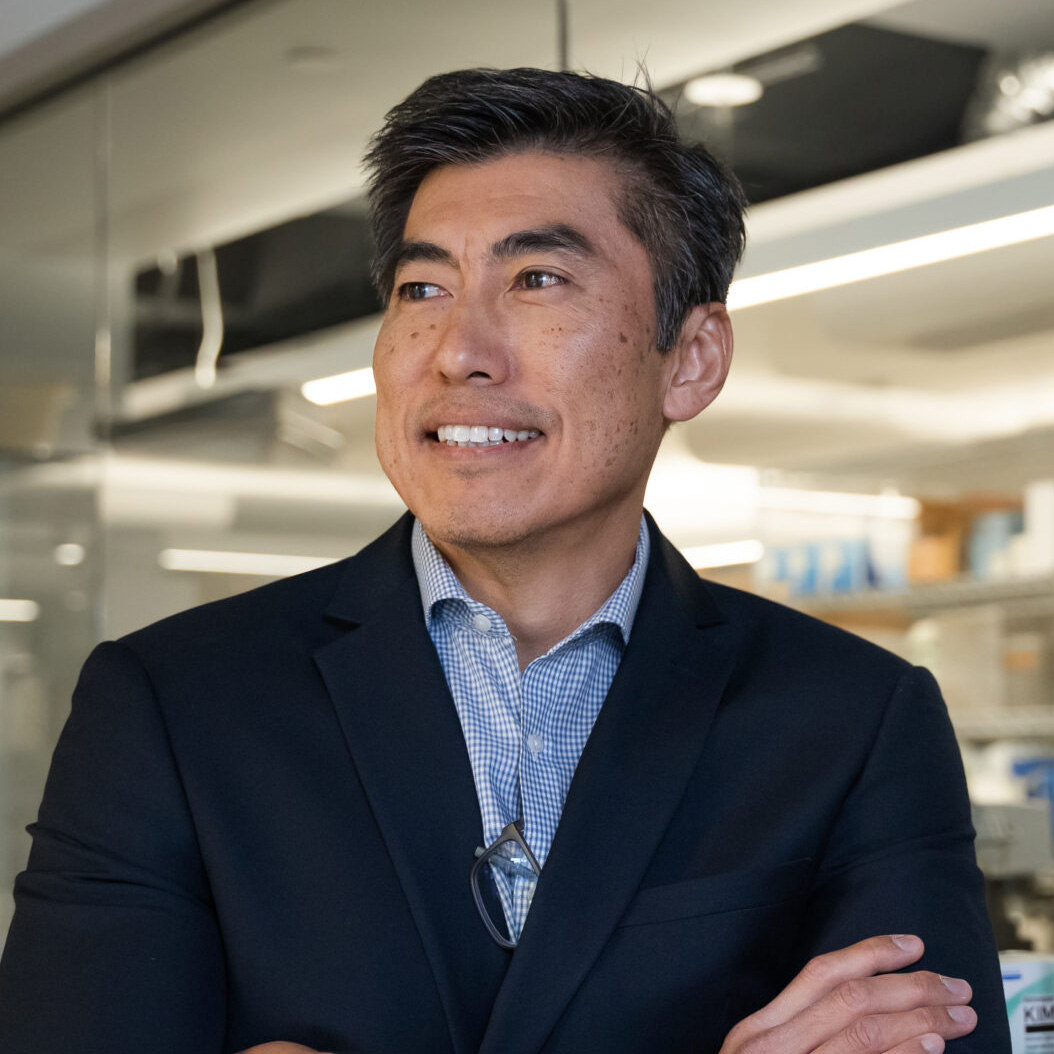
Joon Y. Lee – Founding Director
Specializing in cervical, thoracic, and lumbar spine surgery in the greater Pittsburgh area. Dr. Lee graduated summa cum laude from University of California, Berkeley, and obtained his medical degree from Yale Medical School. He completed his residency in orthopaedic surgery at the University of Pittsburgh Medical Center, PA, and his fellowship in spine surgery at the Rothman Institute-Thomas Jefferson University in Philadelphia, PA. Dr. Lee performs spinal surgery using standard techniques and the latest cutting-edge surgical technologies. These include minimally invasive spine surgery, disc replacement, and microsurgical decompression. For certain spinal problems, these new techniques may allow faster recovery and eliminate the need for spinal fusion.
More About Dr. Lee
Education & Training
- MD, Yale University School of Medicine, New Haven, CT
- Residency: UPMC Medical Education for Orthopaedic Surgery, Pittsburgh, PA
- Fellowship: Thomas Jefferson University Medical College, Philadelphia, P
Research Interests
Ferguson Laboratory for Orthopaedic and Spine Research
Dr. Lee has been involved in research at the National Institutes of Health, Yale Medical School Research Laboratories, and the Orthopaedic Research Laboratory at the University of Pittsburgh. He has authored numerous articles and lectured extensively on topics such as cervical disc herniation, cervical myelopathy, cervical disc replacement, lumbar disc herniation, lumbar spinal stenosis, lumbar disc replacement, spinal fusion, spine trauma, microsurgical decompression, and non-fusion technologies. More information is available by visiting the Ferguson Spine Lab website.
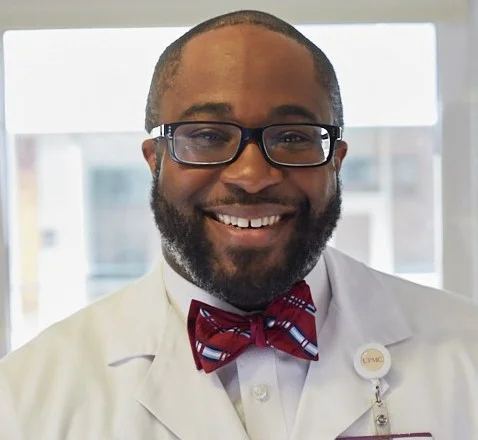
MaCalus Hogan – MD, MBA
Dr. Hogan is an American Board of Orthopaedic Surgery-certified orthopaedic surgeon. He attended Howard University College of Medicine, where he completed his medical degree, and then moved on to the University of Virginia Health System for residency training in orthopaedic surgery. After residency, Dr. Hogan completed his foot and ankle fellowship at the Hospital for Special Surgery in New York, where he served as a consultant for the New York Ballet Company, American Ballet Theatre and several professional and collegiate sport teams. Currently, Dr. Hogan is the David Silver Professor and Chair of the Department of Orthopaedic Surgery, University of Pittsburgh School of Medicine, and chair of orthopaedic surgery at UPMC. He also holds the position of director ofthe Foot and Ankle Injury Research (FAIR) group within the department of Orthopaedic Surgery.
More About Dr. Hogan
Dr. Hogan is a member of the American Academy of Orthopaedic Surgeons, the American Orthopaedic Association, the Orthopaedic Research Society, the American Orthopaedic Foot & Ankle Society, and the J. Robert Gladden Orthopaedic Society, the latter two of which he serves on the board of directors. He has also made major contributions to the field of orthopaedic surgery through his research. During his residency, Dr. Hogan completed a Clinician Scientist fellowship at the National Institutes of Health (NIH). Since then, he has more than 150 manuscripts, book chapters, and presentations both nationally and internationally to his credit.
In addition to his clinical and research practice, Dr. Hogan serves as a foot and ankle consultant for the athletic departments at the University of Pittsburgh, Carnegie Mellon University, Duquesne University, and Robert Morris University. He also serves as the assistant team physician for Point Park University, including the Conservatory of Performing Arts, Pittsburgh Ballet Theatre, Pittsburgh Penguins and Pittsburgh Steelers. He holds secondary appointments in the Swanson School of Engineering (Bioengineering), Clinical and Translational Science Institute (CTSI) and Katz Graduate School of Business-International EMBA Program at the University of Pittsburgh.

Yan Ma
Yan Ma received his PhD in statistics from the University of Rochester. Prior to joining Pitt Biostatistics in 2022, he was professor and vice chair of the Department of Biostatistics and Bioinformatics at the George Washington University Milken Institute of Public Health (2014-2022), and assistant professor at Hospital for Special Surgery and Weill Cornell Medical College (2008-2014).
More About Dr. Ma
As a statistician, Ma has provided a wide range of traditional and cutting-edge statistical consulting services to biomedical and public health investigators and established very productive collaborations with them. His theoretical and computational statistical research interests include missing data imputation, machine learning, meta-analysis, methods for assessing interrater reliability, causal inference, complex sample surveys, and longitudinal methods. Through his collaborative research, Ma has become a statistician specializing in team science, translational science, and comparative effectiveness research. His areas of applications include orthopedics, anesthesiology, health disparities, cancer, HIV/AIDS, psychiatry, and emergency medicine.
Ma has authored over 100 peer-reviewed publications. These publications include statistical methods papers and biomedical and health services research papers in journals such as Biometrics, Statistics in Medicine, Psychometrika, Health Services Research, JAMA, Anesthesiology, Anesthesia & Analgesia, Circulation Research, Clinical Orthopaedics and Related Research, Journal of Bone & Joint Surgery, Regional Anesthesia and Pain Medicine. He has received R01 grants from AHRQ and NIH for the development of statistical methods for handling missing data in health disparities research.
Ma has been an associate editor for two journals published by the American Statistical Association (ASA), The American Statistician, and Statistical Analysis and Data Mining. He was an Editorial Board Member of The American Journal of Public Health. He has served on multiple review panels for the National Institute of Health (NIH), Patient-Centered Outcomes Research Institute (PCORI), as well as for the US Department of Veterans Affairs (VA). He has been a member of ASA’s Mentoring Award Committee. He was a member of Eastern North American Region (ENAR)’s Regional Advisory Board. In 2010, he was a recipient of Statistics in Epidemiology Young Investigator Award by ASA. In 2012, Ma and his collaborators won the esteemed Team Science Award from the Association for Clinical Research Training, American Federation for Medical Research, Association for Patient Oriented Research, and Society for Clinical and Translational Science. This award recognizes the team’s success in translation of research discoveries into clinical practice. In 2017, he was selected to receive research fellowship from the Oak Ridge Institute for Science and Education (ORISE) Research Participation Program at the U.S. Food and Drug Administration. He was the winner of the Achievement in Academia Award for outstanding contributions to statistics and public health from the Applied Public Health Statistics Section of American Public Health Association.
Education
- 2008 | PhD (Statistics), University of Rochester, Rochester, NY
- 2004 | MA (Statistics), University of Rochester, Rochester, NY
- 2003 | MS (Mathematics), Syracuse University, Syracuse, NY
- 2001 | BS (Statistics), Beijing Normal University, Beijing, China
Selected Publications
Ma Y, Tang W, Feng C, Tu XM. Inference for kappas for longitudinal study data: applications to sexual health research. Biometrics. 2008; 64: 781-789.
Memtsoudis SG, Ma Y, González Della Valle A, Mazumdar M, Gaber-Baylis LK, MacKenzie CR, Sculco TP. Perioperative outcomes after unilateral and bilateral total knee arthroplasty. Anesthesiology. 2009; 111:1206-1216.(accompanied by an editorial entitled “Perioperative Comparative Effectiveness Research”, Anesthesiology, 111: 1180-1182)
Ma Y, Passias P, Gaber-Baylis LK, Girardi FP, Memtsoudis SG. Comparative in-hospital morbidity and mortality after revision versus primary thoracic and lumbar spine fusion. The Spine Journal. 2010; 10: 881-889.
Ma Y, Mazumdar M. Multivariate meta-analysis: a robust approach based on the theory of U-statistic. Statistics in Medicine. 2011;30: 2911-29.
Ma Y, Roy J, Marcus B. Causal models for randomized trials with two active treatments and continuous compliance. Statistics in Medicine. 2011; 30:2349-2362.
Potter H, Jain SK, Ma Y, Black BR, Fung S, Lyman S. Cartilage injury following acute, isolated anterior cruciate ligament tear: immediate and longitudinal effect with clinical/MRI follow up. The American Journal of Sports Medicine. 2012; 40: 276-85.
Ma Y, Mazumdar M, Memtsoudis SG. Beyond Repeated measures ANOVA: advanced statistical methods for the analysis of longitudinal data in anesthesia research. Regional Anesthesia and Pain Medicine. 2012;37: 99-105.
Detry MA, Ma Y. Analyzing repeated measurements using mixed models. JAMA 2016; 315(4): 407-408.
Zhang W, Lyman S, Parks M, Boutin-Foster C, Pan T, Lan A, Ma Y*. Racial and Ethnic Disparities in Utilization Rate, Hospital Volume and Perioperative Outcomes following Total Knee Arthroplasty. J Bone & Joint Surg. 2016; 98: 1243-1252 (*mentor and corresponding author)
Ma Y, Zhang W, Lyman S, Huang Y. The HCUP SID imputation project: Improving statistical inferences for health disparities research by imputing missing race data. Health Services Research. 2018; 53(3):1870-1889.
Lee P, Saux ML, Siegel R, Goyal M, Chen C, Ma Y, Meltzer A. Racial and ethnic disparities in the management of acute pain in US emergency departments: Meta-analysis and systematic review. The American Journal of Emergency Medicine. 2019;37(9):1770-1777.
Huang YX, Fields KG, Ma Y*. A tutorial on generative adversarial networks with application to classification of imbalanced data. Statistical Analysis and Data Mining: The ASA Data Science Journal 2022; 15(5):543-552 (*Corresponding author).
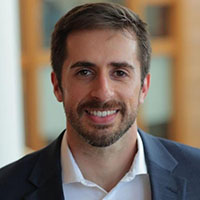
Pedro Baldoni
My research interests focus on the development of statistical methods and open-source bioinformatic tools to analyze data from a wide range of high-throughput genomic, transcriptomic, and proteomic technologies. I am particularly interested in developing methods and software for the Bioconductor Project. One of the key purposes of the methods I develop is to identify molecular features, such as genomic coordinates, genes/transcripts, or proteins that change in accessibility, expression, or abundance, respectively, between experimental conditions. At Pitt, I collaborate with research groups from the Department of Orthopedic Surgery to understand genomic and molecular mechanisms in spine-related diseases, other orthopedic issues, and patients with traumatic brain injury. These collaborations are the foundation from which my methodological and computational ideas originate.
More About Dr. Baldoni
Education
- 2020 | University of North Carolina at Chapel Hill, NC | PhD in Biostatistics
-
2014 | University of Campinas, Brazil | MSc in Statistics
-
2012 | University of Campinas, Brazil | BSc in Statistics
Selected Publications
Baldoni PL, Chen L, Smyth GK. Faster and more accurate assessment of differential transcript expression with Gibbs sampling and edgeR v4. NAR Genom Bioinform. 2024 Nov 4;6(4):lqae151. doi: 10.1093/nargab/lqae151. PMID: 39498433; PMCID: PMC11532793.
Chen Y, Chen L, Lun AT, Baldoni PL, Smyth GK. edgeR 4.0: powerful differential analysis of sequencing data with expanded functionality and improved support for small counts and larger datasets. bioRxiv. 2024:2024-01.
Baldoni PL, Chen Y, Hediyeh-Zadeh S, Liao Y, Dong X, Ritchie ME, Shi W, Smyth GK. Dividing out quantification uncertainty allows efficient assessment of differential transcript expression with edgeR. Nucleic Acids Res. 2024 Feb 9;52(3):e13. doi: 10.1093/nar/gkad1167. PMID: 38059347; PMCID: PMC10853777.
Dong X, Du MRM, Gouil Q, Tian L, Jabbari JS, Bowden R, Baldoni PL, Chen Y, Smyth GK, Amarasinghe SL, Law CW, Ritchie ME. Benchmarking long-read RNA-sequencing analysis tools using in silico mixtures. Nat Methods. 2023 Nov;20(11):1810-1821. doi: 10.1038/s41592-023-02026-3. Epub 2023 Oct 2. PMID: 37783886.
Baldoni PL, Rashid NU, Ibrahim JG. Efficient detection and classification of epigenomic changes under multiple conditions. Biometrics. 2022 Sep;78(3):1141-1154. doi: 10.1111/biom.13477. Epub 2021 May 3. PMID: 33860525.
Baldoni PL, Sotres-Alvarez D, Lumley T, Shaw PA. On the Use of Regression Calibration in a Complex Sampling Design With Application to the Hispanic Community Health Study/Study of Latinos. Am J Epidemiol. 2021 Jul 1;190(7):1366-1376. doi: 10.1093/aje/kwab008. PMID: 33506244; PMCID: PMC8245895.
Baldoni PL, Rashid NU, Ibrahim JG. Improved detection of epigenomic marks with mixed-effects hidden Markov models. Biometrics. 2019 Dec;75(4):1401-1413. doi: 10.1111/biom.13083. Epub 2019 Oct 17. PMID: 31081192; PMCID: PMC6851437.
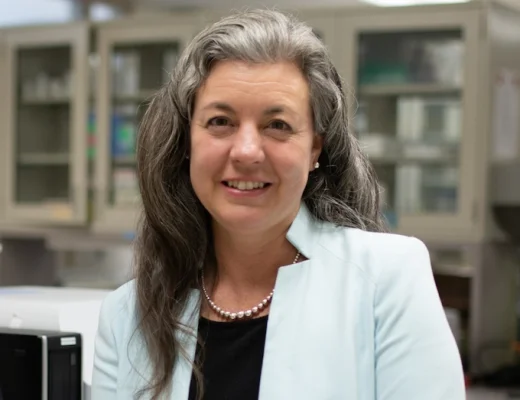
Gwendolyn Sowa
Dr. Gwendolyn Sowa is Endowed Professor and Chair of the Department of Physical Medicine and Rehabilitation, and co-director of the Ferguson Laboratory for Orthopaedic and Spine Research at the University of Pittsburgh, where she holds joint appointments in the Departments of Orthopaedic Surgery and Bioengineering. She also serves as director of the UPMC Rehabilitation Institute.
More About Dr. Sowa
As an active clinician scientist, Dr. Sowa focuses her research on the biological and clinical phenotyping of patients with low back pain to facilitate improved treatments. She also serves as the co-principal investigator (PI) for the National Institutes of Health/National Institute of Arthritis and Musculoskeletal and Skin Diseases Back Pain Consortium (NIH/NIAMS BACPAC) Mechanistic Research Center, part of the Helping to End Addiction Long-term (HEAL) Initiative.
Using her background in biochemistry, Dr. Sowa performs molecular laboratory-based, translational and clinical research, investigating the effect of motion on inflammatory pathways and the benefits of exercise. Dr. Sowa also has an active research program investigating the role of serum biomarkers in guiding individualized treatment in intervertebral disc degeneration and back pain. She was recently recognized for her contributions by election to the National Academy of Medicine.
Dr. Sowa’s publications are indexed on PubMed
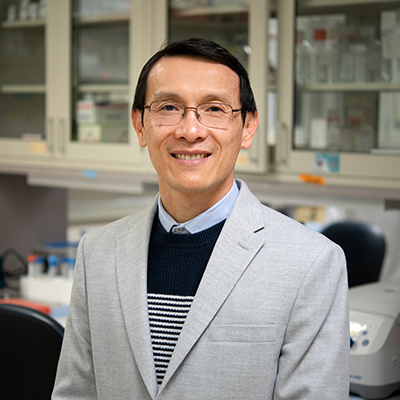
Nam Vo
Dr. Nam Vo is professor of orthopaedic surgery and deputy vice chair of research in the Department of Orthopaedic Surgery at the University of Pittsburgh School of Medicine, where he also holds joint appointments in the Departments of Pathology, McGowan Institute for Regenerative Medicine, Clinical and Translational Science Institute, and University of Pittsburgh/UPMC Aging Institute.
More About Dr. Vo
Dr. Vo received his PhD degree with Dr. Michael Chamberlin in Molecular Biology and Biochemistry from the University of California at Berkeley in 1998. He completed his postdoctoral training with the Howard Hughes Medical Institute Investigator Dr. Michael Lai at the University of Southern California in 2003 and joined the faculty of the Department of Orthopaedic Surgery at the University of Pittsburgh in 2006.
Dr. Vo is a highly dedicated mentor, having trained more than 50 mentees, many of whom have gone on to have successful careers as independent investigators. He is well-funded by the NIH and other grant-making agencies and has published more than 100 peer reviewed publications, review articles, and book chapters. He is currently a co-director of the Ferguson Laboratory for Spine Research, which has diverse representation from experts in orthopaedic surgery, physiatry and physical therapy who are performing highly inter-disciplinary spine research that spans molecular and cell biology, histology, bioengineering, biomechanics, cell biology, biomarkers for spine degeneration and low back pain.
Dr. Vo’s research program examines the biology of aging of the spine and its contribution to low back pain. His research focus areas include: 1) interaction of autophagy and cellular senescence in spinal aging, 2) lactate metabolism and epigenetic regulation in spinal aging, 3) development of therapeutic interventions, including senolytics and gene therapy, for treating age-related spine degeneration and low back pain, and 4) deep phenotyping of chronic low back pain through biomarker profiling.
View a list of Dr. Vo’s publications here.

Laurie Dearolf
Dr. Laurie Dearolf, PhD is the Operations Manager for the BMRC. She received her PhD from the University of Pittsburgh Department of Bioengineering, and then completed postdoctoral training at Children’s Hospital of Pittsburgh/ University of Pittsburgh Department of Plastic Surgery.
More About Dr. Dearolf
Following academic training, Dr. Dearolf worked with The Perry Initiative, most recently serving as executive director for 8 years. The Perry Initiative’s mission focused on reducing gender disparity in orthopaedic surgery and related engineering careers through hands-on orthopaedic surgery outreach programs for more than 18,000 high school & medical students.
Dr. Dearolf holds special interest in diversity, equity and inclusion in the field of orthopaedics, believing that diverse ideas brought forth by diverse investigators and clinician scientists are the key to creating breakthroughs in treatment and prevention of musculoskeletal diseases.
Center Staff

Dana Farrell
Clinical Trials Core Project Manager, Department of Orthopaedic Surgery
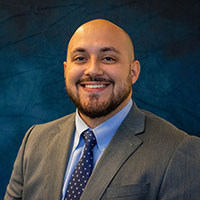
Christopher Gonzalez
BMRC Clinical Research Fellow
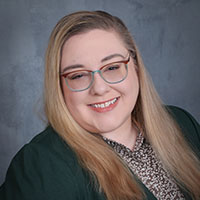
Katie Morris
Communications Specialist
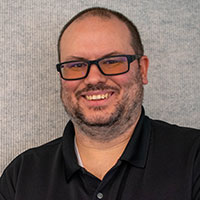
Brandon Vallies
Senior Systems Administrator
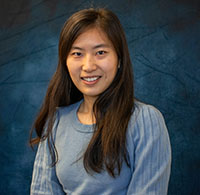
Yuhan Wang
Data Engineer
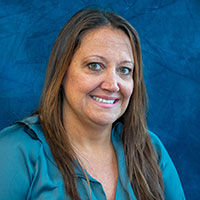
Shelly Horgan
Administrative Assistant
